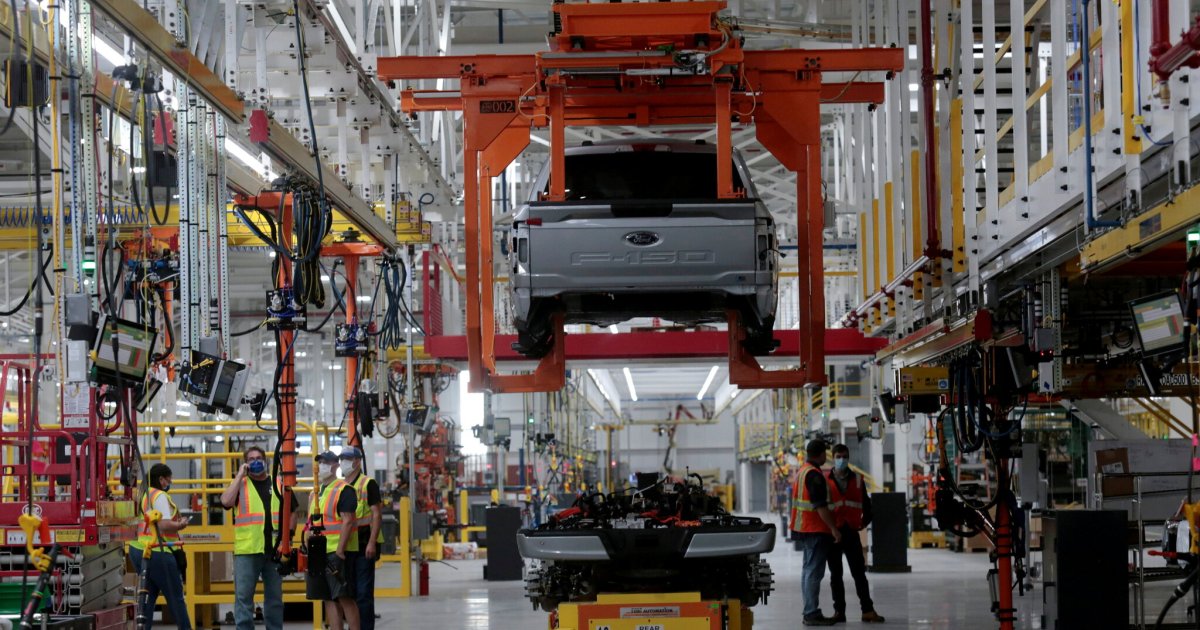About two months ago, the chief executives of Ford Motor Company and GlobalFoundries, a supplier of semiconductors, spent several hours discussing the chip shortages baffling automakers and disrupting production around the world.
Last Thursday, the two companies revealed the outcome of that meeting, a joint collaboration aimed at increasing chip manufacturing in the US and improving Ford's supply of those critical parts.
Ford said in a statement that it and Global Fundrise had signed a non-binding agreement to cooperate in developing chips for Ford cars, and that the companies would explore ways to expand chip production in the United States.
"It is critical that we create new ways of working with suppliers to give Ford and America greater independence in providing technologies and features that our customers will appreciate in the future," said Jim Farley, Ford's CEO.
"This agreement is just the beginning, and a key part of our plan to pivotally integrate the technologies and capabilities that will set Ford apart well into the future," he added.
Jim Farley, CEO of Ford Motor Company: “It is critical that we create new ways of working with suppliers to give Ford and America greater autonomy in providing technologies and features that our customers will appreciate in the future.”
The two companies plan to continue discussions about specific ways to increase chip production in the United States, but declined to go into details or say whether Ford might invest in a new semiconductor plant with Global Fundrise, as the current memorandum of understanding does not call for a share-sharing between the two companies. .
Global Funds CEO Thomas Caulfield said the agreement would boost innovation and "ensure a balance between supply and demand in the long term".
Ford and other automakers have had to intermittently shut down car factories this year because they couldn't get enough computer chips that would represent the brains needed to control engines, transmissions, brakes, infotainment systems and more.
General Motors is also in discussions with chip companies about ways to secure enough chips to keep its plants running as well.
General Motors CEO Mary T.
Barra, on a conference call last month "we're specifically working on a strategy to make sure we don't see these kinds of restrictions in the medium term and certainly in the long term."
Ford and other automakers have had to intermittently shut down car factories this year because they couldn't get enough computer chips that are the brains needed to control engines, transmissions, brakes, infotainment systems and much more.
The chip shortage in the auto industry has been traced back to the beginning of the pandemic, when car factories closed their doors for nearly two months to prevent the spread of the coronavirus among workers.
At the same time, sales of computers and games rose, and their producers increased orders for semiconductors.
When automakers resumed production, chip suppliers had little production capacity.
US Ford was particularly hard hit earlier this year because a chip plant owned by one of its major suppliers was shut down due to a fire.
In the second quarter, the company was only able to make about half as many vehicles as it originally expected, although its supply of chips has steadily improved since then.
Global Fundrise was formed in part through the acquisitions of factories formerly owned by Chipmaker Advanced Micro Devices and IBM, and had an initial public offering of shares in October It is also investing heavily to expand its production.
In September, Farley visited Caulfield at the Global Fundrise headquarters near Albany, New York, to discuss how the two companies might cooperate, according to a person familiar with the matter.
© The New York Times Foundation 2021. Translated
by Al Arabiya, "Al Jazeera's Leadership" page.

